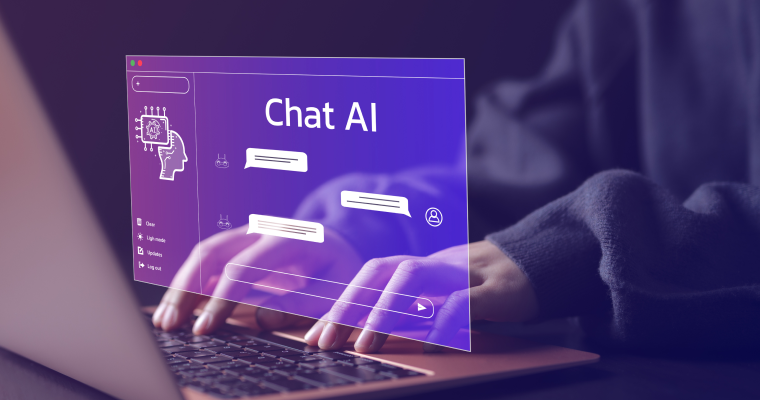
In 2023, a new landscape of content creation and SEO was born, thanks to massive progress in the availability of artificial intelligence (AI) tools. Most notably, you’ll remember the launch of OpenAI’s Chat Generative Pre-Trained Transformer, better known as ChatGPT.
ChatGPT quickly took the world by storm and ushered in a new era of unknown variables and challenges for content creators and SEO marketers alike. The idea that chat bots could replace traditional search engines swept its way through the SEO and writing community very quickly. Let’s dive into a breakdown of the implications of creating SEO-focused organic content generated by ChatGPT.
Before we dive too deep into this, let’s go over what this “ChatGPT” thing is all about. ChatGPT is an Artificial Intelligence model developed by OpenAI that is capable of impressive functions such as:
It does all of this through a neural network. These AI models utilize advanced NLP or Natural Language Processing, which receives inputs, and connects the dots within a neural network through pre-trained data and produces a presumed suitable response. In layman’s terms: it’s pretty smart for a machine.
ChatGPT has become so advanced that uninformed users have had difficulty telling if its responses are AI-generated or from a human being. Scary right?
With those abilities, it’s no wonder that people are starting to turn to AI-generated content more and more. So what will ChatGPT and its competitors mean for the world of SEO and SEM marketing? Will it replace human copy writers and SEO specialists? Let’s find out.

In mid-2022, Google’s John Muller made a profoundly clear statement on Google’s stance on AI-generated content:
“For us these would, essentially, still fall into the category of automatically generated content which is something we’ve had in the Webmaster Guidelines since almost the beginning… My suspicion is maybe the quality of content is a little bit better than the really old school tools, but for us it’s still automatically generated content, and that means for us it’s still against the Webmaster Guidelines. So, we would consider that to be spam.”
As a best practice, if you use ChatGPT, you should avoid copy and pasting. Whether or not Google continues to label AI-generated content as “spam”, your audience knows your voice vs. a machine. Plus it will impact your content ranking, since Google strives to reward useful and user-friendly content. Marketers who stay within Google’s guidelines benefit in the long run.
As we mentioned with the Panda update, Google is constantly looking for ways to promote high-quality and unique content. For marketers, it looks for a few things, which we’ll go over briefly now.
The first variable is E-E-A-T, which stands for experience, expertise, authoritativeness, and trustworthiness. All that means is Google prioritized original, hand-crafted copy that demonstrated an extensive understanding of the subject matter and used references, quotes, case studies, and firsthand client or customer reviews to validate any claims.
A lesser-known ranking factor of web pages or landing pages is known as Rank Brain. Rank Brain is Google’s machine learning system that helps measure several user signals and variables to gauge query relevance and page quality.
Rank Brain considers all the following:
The last variable to note is Google’s Web Core Vitals. These vitals are used to measure a user’s page experience (UX). Google’s key indicators turned from measuring a website’s overall page load time to key performance indicators. The top three most important indicators are FCP (first content paint), FID (first input delay), and CLS (cumulative layout shift).
Honestly, the answer is, “No, ChatGPT is not really good at writing content.” Despite recent advancements, the technology surrounding AI-generated content is still young. There are still limitations and precautions you should consider before flooding the search engines with autogenerated content.
The “P” in GPT stands for pre-trained. Herein lies the first limitation of GPT-type AI models. Although incredibly impressive, a GPT model can only generate content based on the data set it’s been given.
ChatGPT is specifically trained on data acquired up until 2021. This is a huge red flag for marketers, as it is based on outdated SEO and content practices. Content marketing requires forward thinking, a trendsetting attitude, and an out-of-the-box approach to make a brand stand out. Relying on year-old data or generic data is a quick way to get stuck in the past.
If you’re thinking about publishing a blog or turning in a 10-page essay dissecting the psyche of Jay Gatsby that was written entirely by ChatGPT, think again. Even if you edited it, AI-content leaves traces. OpenAI is developing a traceable invisible watermark that is undetectable to the everyday reader, but very detectable by Google and other programs.
In a lecture at the University of Texas at Austin, Scott Aaronson, a guest researcher at OpenAI, stated:
“We want it to be much harder to take [an AI system’s] output and pass it off as if it came from a human.” He went on to say, “This could be helpful for preventing academic plagiarism, obviously, but also, for example, mass generation of propaganda—you know, spamming every blog…”
This should reassure SEO specialists and content writers alike because the idea of undetectable, autogenerated copy used to bolster organic traffic is still very much just that—an idea.
Remember: ChatGPT outputs are only as good as the (outdated) data it has been trained on. As a result, the answers provided by ChatGPT are not always accurate or true.
In several tests performed by SEJ, ChatGPT struggled with simple QAs and basic understanding. This creates significant concern in an era where Google places significant importance on accurate and trustworthy information when evaluating rankings.
It could also provide biased or one-sided answers. Considering there will soon be several accessible ChatGPT-like models on the market, it’s likely some of them will be limited by their creator’s capabilities or the information they can access. This will likely result in skewed outputs or biased information.
Even as AI enters the age of unlimited information, checking your sources will be more important than ever.

Now let’s talk about why you should consider harnessing AI to improve your marketing and content strategy. Ask yourself, “How can we use AI to facilitate and streamline our processes?” We investigated how to best harness the effectiveness of AI to service your client’s needs and found the following strong use cases.
Structured data or schema markup is easily accessible data that Google uses to determine the placement and relevancy of your result to a user’s search. If you make it easy for Google to understand your page contents, your page will have a better chance of ranking higher.
However, writing schema can be tedious. ChatGPT can remove the monotony of that work and simplify the process for non-technical users. Just make sure to validate the schema outputs before embedding it within your page.
Using AI can be a great way to break through writer’s block. Utilizing ChatGPT can help get the creative ideas flowing and remove the time spent staring at a blank screen. Additionally, ChatGPT has performed well when asked to create metadata such as descriptions and SERP titles.
Just as ChatGPT can help generate creative writing ideas, it can also give a high-level analysis of keywords and on-page ranking factors. It is also a great source to ask high-level questions about SEO strategy, best practices, and ways to incorporate SEO into your business.
Yes and no. ChatGPT was arguably the biggest digital launch of the past decade and has rapidly evolved the way marketing professionals approach content strategy. The new era comes with tons of excitement, but also justified reservations. As it stands, entirely relying on AI tools such as ChatGPT to execute, or write, competitive organic content is a big no-no.
However, that doesn’t mean you can’t utilize it as a tool for brainstorming, outlining, and research. If you’re unsure how AI-generated content will affect your brand or how to fit it into your content and SEO strategies, our team of SEO specialists and content writers are here for you, and we want to help!
Agital takes a forward-thinking approach that merges SEO and writing best practices with the latest cutting-edge systems to make sure your brand stands out against the competition. Reach out today to learn how AI and ChatGPT can bring your brand into the future without hindering your human side.
